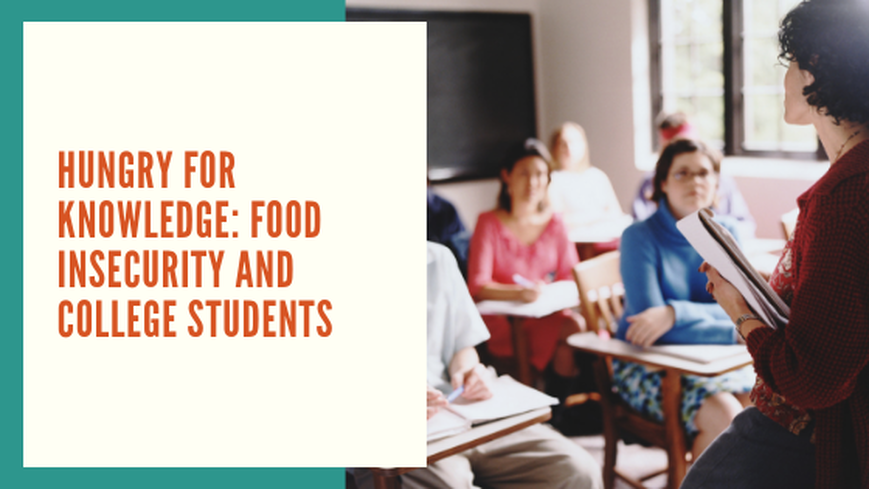|
College students across the country are facing food insecurity at overwhelming rates. Time, budget, and transportation are all common obstacles that make it difficult for students to have a nutrient-rich diet that is balanced and affordable. With tuition, boarding, and other expenses stacking up, nutritious food options can seem unattainable. Transportation to affordable grocers is also an issue on campuses across the country, and this becomes an even more pressing issue when these campuses are surrounded by easily accessible and cheap fast food, junk food, and instant meals. The rate of food insecurity among college students is difficult to measure due to the sheer volume of 2-4 year institutions. However, almost half of college students in the United States are reported to be food insecure. At Arizona State University, 30% of students living in dorms are food insecure, and 32% report inconsistent access to food. These numbers have not been quantified at other Arizona schools. Both price and accessibility play large roles in food insecurity among college students. At the University of Arizona, students found the fresh produce available at the stores on campus were priced much higher than those at grocery stores that were difficult to get to. An onion at the campus market was an astounding $1.50, while the one at the grocery store further from campus was .30 cents. Students often times come to universities without cars, so limited access to an affordable grocer makes it even harder to obtain an affordable and nutrient-rich diet. Hunger can go unnoticed, and even become normalized or expected when it comes to college students. Temporary solutions have been implemented on some campuses, and many schools have established food pantries and voucher programs for those in need. Both Northern Arizona University and University of Arizona have pantries for students in need. The UA campus pantry serves around 100 students each Friday and provides them with 1,000 pounds of perishable and nonperishable food. Lack of awareness and overall research has moved ASU to shut down its Pitchfork Pantry, which shines light on the need for a more comprehensive look at this issue statewide. ASU has a voucher program through the Dean's Office for anyone needing help with a few meals, but this is not a long-term solution. Arizona’s need for a permanent and successful solution addressing college food insecurity is apparent. Pinnacle Prevention is always striving to build more resilient communities. College students are an important piece of our collective puzzle, and their success intertwines with the success of their school, their communities, and our future. We hope to be able to assist in finding thoughtful, lasting solutions to help foster a healthier and happier Arizona for all.
0 Comments
Leave a Reply. |
Pinnacle Prevention BlogFollow our blog for tips, insights and conversations about healthy living. Archives
June 2024
Categories
All
|
Location |
|


